And in the great theatre of Lepcis, in Libya, an inscription was placed in AD 1–2 by the theatre’s local patron: “Annobal Rufus, son of Himilcho Tapap, adorner of the fatherland, lover of concord, flamen, suffete , captain of ritual, had it built at his own expense, and dedicated the same.” (It was dedicated to the honour of “the god’s son Augustus,” a nice touch that dates it, since Julius Caesar’s deification had by then been achieved, but not yet that of his adopted son, the emperor Augustus.) Its bicultural credentials were advertised in two ways. He took both Roman and Phoenician priestly titles ( flamen like the Roman priests of Jupiter and other major gods, and suffete , no different from the Hebrew shophet , the title of Israel’s ‘judges’). And the Latin inscription was immediately followed by a Punic equivalent, which actually omitted the loyal references to Augustus. Lepcis had been a relatively free ally of Rome since 111 BC. 15
By the reign of Augustus, then, which bridged the millennium divide BC–AD, use of Latin was already a natural symbol of allegiance to Rome. And Latin’s association with sinews of Roman power—with the army, the courts, and the organs of provincial administration, especially taxation—meant that it remained a highly politically charged language throughout the centuries of Roman rule, and especially so in those parts of the empire—Greece, Asia Minor, Egypt, Africa, and perhaps even Britain—where ordinary people continued to speak something else at home.
HIS EGO NEC METAS RERVM NEC TEMPORA PONO: IMPERIVM SINE FINE DEDI…
On them I place neither bounds to their possessions nor limits in time: empire without end I have granted…
Jupiter’s promise to the Romans: Virgil, Aeneid , i.279
The Roman Empire was a mighty accomplishment, and it affected—as all empires do—the self-esteem of its citizens, its rulers, and above all its creators. They needed an answer as to what their unreasonable military success really meant. The only answer the Romans found seems to have been that they were fated to dominate the world. This consciousness, inseparable from Latin, is the sense of our title: AD INFINITVM.
When Julius Caesar was in his mid-thirties, serving as governor of Further Spain, he fell to brooding on the career of Alexander the Great. This man had conquered the greatest empire of his day before he was thirty-three, while he himself had not yet done anything memorable. Caesar wept.
In Latin, Suetonius wrote, IAM ALEXANDER ORBEM TERRARVM SVBEGISSET ‘Alexander had already subdued the world’. Alexander’s conquests had gone from Egypt to modern Pakistan, but on every border there were still neighbours who had not been conquered, Celts, Italians, Ethiopians, Arabs, Armenians, Sogdians, and above all the vast mass of Indians. Exaggerating the scale of mighty conquests came easily in that age. But the striking thing is how they saw their world as existing only as far as they knew it. Caesar went on to do his bit for conquest (he spent his forties subduing most of what is now France and Belgium—and so in a single decade laid the basis for the existence of French). He then enforced his personal rule over the whole Roman republic, a dominion that in his day included every land with a shore on the Mediterranean Sea. Twenty years after those bitter tears in Spain, he had made himself more famous, and more victorious, even than Alexander. And so, duly, when the dust cleared from the civil wars that followed Caesar’s death in 44 BC, Rome was soon minting coins with the legend PAX ORBIS TERRARVM ‘Control of the World’.
The very scale of the Empire, and the fact that its borders largely ceased to expand in the first century AD, laid the basis for a collective delusion that came to be shared by the whole Latin-speaking world. The distance that separated Rome from any outsiders, and the virtual absence of any dealings with them, whether to fight or (knowingly) to trade, spread the underlying sense that they were insignificant, almost nonexistent. The Latin word VNIVERSVM shows this idea built into the language. It means ‘all’, but is literally ‘turned into one’. The Romans in their empire undertook to do just that to the whole world.
They liked to tell themselves that they had succeeded. Certainly, from the defeat of their rival city Carthage in the third century BC until the influx of Germans in the fifth century AD, the Romans had no neighbour that was a serious military threat and within the Mediterranean world were able to subdue utterly any power that they challenged. Wars with the Romans seemed to have only one outcome in the long term, the subjugation and control of the adversary, to the extent that its territory passed permanently under Roman control. The political environment that the Romans knew was unipolar in a way that has scarcely been conceivable since its empire was broken up. In the second century AD the emperor Antoninus Pius had affected in all seriousness the title DOMINVS TOTIVS ORBIS ‘Lord of the Whole World’.
Aelius Aristides, a sophist from Greece, is famous for his encomium of Roman greatness, which he delivered when he visited Rome in AD 155. He formulated the official self-deception rather well: for him, the boundary of the Empire was not so much nonexistent as irrelevant. What lay beyond it was insignificant, and the boundary itself was perfect both in its form (notionally a circle) and in the ordered zone it defined:
Nothing gets away from you, no city, no people, no port, no fortress, unless—naturally—you have condemned it as useless: the Indian Ocean and the Nile cataracts and the Sea of Azov, called the ends of the earth in the past, are now just “the courtyard fences” for this city… Great and large in extent as is the Empire, it is much greater in its strictness than in its area encompassed … so the whole inhabited world speaks more strictly as one than a chorus does, praying that this empire will last forever: so brilliantly it is conducted by this maestro.
This last metaphor is the closest he came to hinting that Latin was the glue that held the Empire’s peoples in place: he was a Greek, writing in Greek, after all. The “courtyard fences” were an allusion to the Iliad , ix.476, where a hero describes breaking out of a palace where he is held under guard: Aelius was implying that Rome could go beyond any of her boundaries if she so chose. Later, he wishfully strayed even further from the strict truth, addressing the Romans, rather than their city:
You have made factually true that saying from Homer “the earth is common to all” ( Iliad , xv. 193), having measured out the whole inhabited world, yoking rivers with bridges of every design, cutting through mountains to make bridleways, filling the deserts with staging points, and taming everything with settled ways and discipline… There is no need to write geographical descriptions or to enumerate each nation’s laws, since you have become common guides for all, swinging wide the gates to the whole inhabited world and allowing anyone so minded to see places for themselves, setting the same laws for all … organizing as a single household the whole inhabited world. 16
Again Aelius quoted Homer; but the words were from a speech of the god Poseidon, explaining that the earth (unlike the sea, sky, and underworld) was shared between himself and his two brothers Zeus and Hades. The implication, for the learned reader, was to put Rome on an Olympian level.
Yet when they thought about it, educated Romans always knew that they had not quite pulled it off. Even as Augustus was putting PAX ORBIS TERRARVM on the coinage, the historian Pompeius Trogus was writing that Rome shared the world with Parthia, the power in what is now Iran. In the north—after a humiliating defeat in AD 9 in the Teutoburger Wald, which Augustus could never forgive or forget—it was official policy not even to try to conquer Germany. Practical discretion could cap pugnacious patriotism. And Romans had heard of many more peoples, Hibernians, Scythians, Sarmatians, Aethiopians, Indians, all well beyond their control. In the time of Christ, Pliny wrote of Taprobane (Ceylon), a whole new world across the ocean itself. And where, after all, did silk come from, that mystifying commodity in the luxury markets of Rome?
Читать дальше
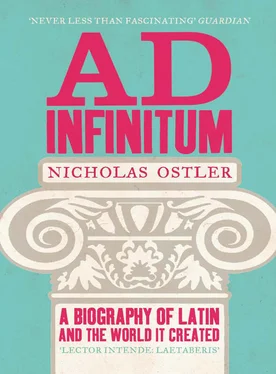

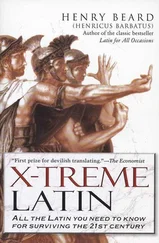




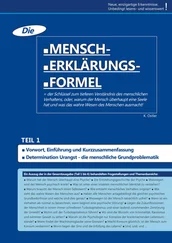
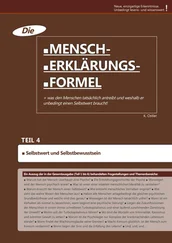
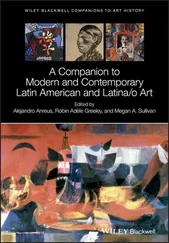

![Nicholas Timmins - The Five Giants [New Edition] - A Biography of the Welfare State](/books/701739/nicholas-timmins-the-five-giants-new-edition-a-thumb.webp)
